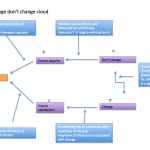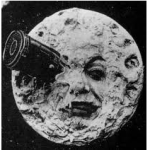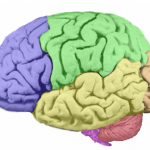In our previous post we looked at tools for the three phases of change (What to Change, What to Change to and How to Make the Change Happen). This post is in response to several comments that asked about the ‘why’ of change. Dr. W. Edwards Deming used to say: “The only thing that does […]
Change: Tools for Thinking, Planning and Enacting Change
Continuing our series on Change. In our previous post, we mentioned the three phases of change: what to change what to change to how to make the change happen For each of these phases, there is a powerful Thinking Process Tool from the Theory of Constraints (TOC). Let’s look at the three phases. What to […]
Change: Intuition, Understanding and Knowledge
Continuing our series on change. We live in an extraordinarily complex, post-digital world, where interdependencies and interconnections multiply at an ever-increasing speed. The cause-effect relationships that govern the world as we experience it create a super intricate ‘network of networks’ and we have a very limited understanding of the underlying properties of these networks and […]
Change: Control vs. Vision in our decisions to change
Change: Why do people find it so hard (and what can we do about it)?
In our next few posts we will be looking at the difficulty we have to change, and how we can achieve change and improve our systemic intelligence. Change is the most unchanging part of our existence: • our pancreas replaces most of its cells every 24 hours • the cells of our stomach lining are […]
Network of Networks (continued): The Intrinsic Risk of Super Hubs
When an enterprise is successful and grows in size, there is inevitably an increase in the number and quality of interdependencies, i.e. exchanges with other parts of the network of enterprises it is part of. These can include information, money, manpower, and goods etc. This leads to a double level of complexity: one level is […]
Skills vs. Culture in Education – Developing a Solution
In our previous post we looked at the conflicting positions of a school that emphasizes skills vs. a school that emphasizes culture. The ‘skill school’ protects the need to develop ability to apply skills in a work environment, whereas the ‘culture school’ protects the need to develop the ability to think and analyze in an […]
Skills vs. Culture – a Conflict in Education and Innovation
Humanity evolves through cooperation. This cognitive evolution has allowed us to grow beyond living in isolated, warring tribes to create international communities based on common interests. The distinctive feature that has allowed mankind to evolve in this cooperative way beyond animals is language. It is through language that humans create higher levels of consciousness. Thanks […]
Reality is not made up of cycles but complexity – Innovation and Education Part 2
Prof. Pagano is Associate Professor of Experimental Physics at University of Salerno, Italy. His considerations here provide the backdrop for verbalizing the core conflict in which educational institutions, schools and universities are immersed. We will analyze that core conflict in our next post. Cycles We tend to see recursive patterns in all aspects of life. […]
Can a Standard for Innovation Make Companies Smarter? – Standard of Innovation Part 5 of 5
This post is by Dr. Domenico Lepore, an international expert on systems thinking for management. He is the Founder of Intelligent Management Inc. An organization requires great focus in order to keep up with the continuous innovation process. The focus needed can only be developed as a result of an improved “collective systemic intelligence”. By […]












